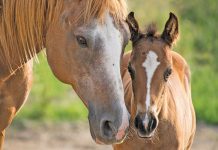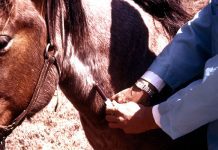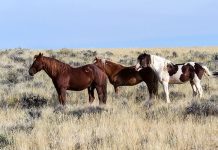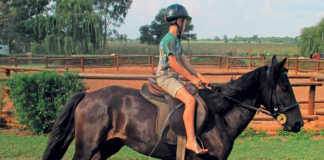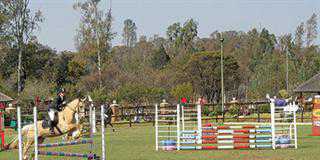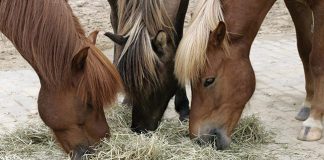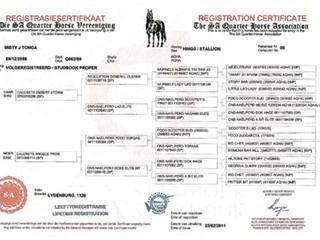
The breeding of pedigreed animals is governed by the Animal Improvement Act (AIA) of 1998. Contravention of the act is a criminal offence. It protects the breeder as well as the buyer from fraud even when it comes to artificial insemination and embryo transplants. For example, did you know it contravenes the act if a breeder sells you a horse and fails to give you the pedigree? Technically, you should have it within two weeks of purchase.
And, of course, it’s illegal to alter or forge pedigrees or even disseminate false information about a horse. This includes claims about the performance of stud animals. How often have you heard that “this horse is a multiple champion”? If this is the case, the seller should be able to provide the dates of the shows and the names of the classes where the horse was a champion.
Breed societies should also have this information, and if you’re paying a lot of money for a pedigree horse, it’s worth checking.
Live and/or cryopreserved semen can only be stored at a facility registered in terms of section 8(6)(b) of the act. And those who transfer semen to mares must be licensed and have the proper, accredited training, or be a qualified vet.
DNA tests
Furthermore, the parentage of all foals derived from embryo transfer must be identified through DNA tests to ensure that the foal carried by the surrogate mare is not one from her own ovaries. A new regulation was added to the AIA this year relating to the venereal infection, Contagious Equine Metritis (CEM). No foal will be registered if the sire wasn’t tested for CEM prior to covering and the certificate sent to the breed society.
Mare owners who aren’t sure if the stallion used was indeed tested can confirm this on the CEM website, www.cemsa.co.za, which lists stallions that have tested negative. If the owner of the stallion has bred mares without the certificate, they’ve broken the law and this can be brought to the registrar’s attention, who will take the matter further.
Studbook
The South African Studbook and Animal Improvement Association – known as ‘Studbook’ – keeps records of all pedigrees, certificates and performance data of pure-bred animals in collaboration with the relevant breed society. Its constitution and objectives are formulated in line with the AIA and updated accordingly when the legislation is reviewed.
Membership can be withdrawn if breed societies do not follow the AIA. In this way, Studbook encourages and promotes the breeding and genetic improvement of the production potential of animals in South Africa, including livestock, horses and even dogs. The advantage of breeding registered stud animals in SA is that there is guidance and information available from Studbook to improve breeds genetically.
Studbook also assists in preventing inferior genetic material, including animals, semen and ova, from being imported. It also, because of its link to the Animal Improvement Act, safeguards breeders and purchasers against fraud.
Contact Dr Mac at [email protected]. Please state ‘Horse talk’ in the subject line of your email.


